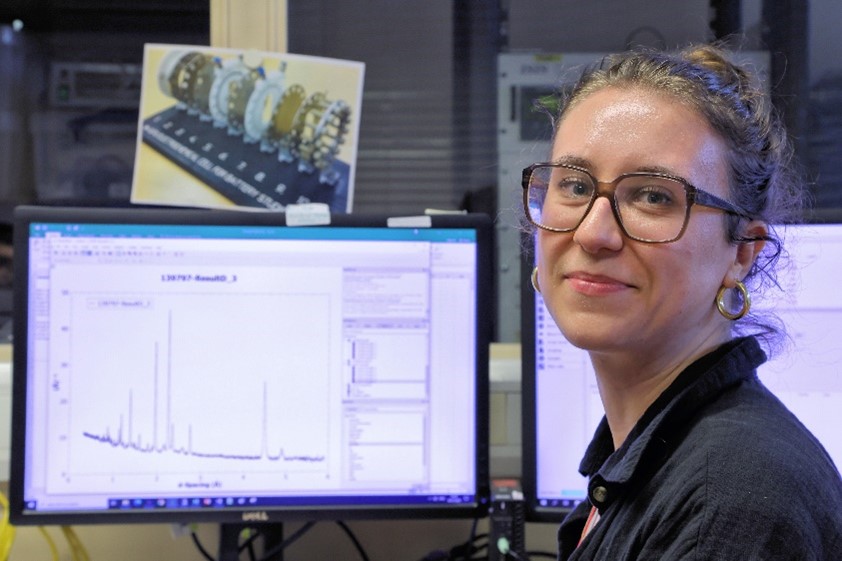The ReMade@ARI project[1] provides access for European researchers to around 50 facilities for materials studies, including neutron and muon beams at ISIS. It aims to help European scientists develop new materials that are more durable, reusable, repairable and recyclable to extend lifetimes and reduce waste – the circular economy.
Researchers Denis Kuznetsov and Valentina Vogt from ETH Zurich in Switzerland applied through ReMade to use the Polaris diffractometer at ISIS as part of their work exploring the development of new catalysts. Catalysts are used in many industrial processes to produce the materials we need for daily life, including fuels and feedstocks. These processes can often be very energy-intensive, so finding ways to make them more sustainable is important. Development of new catalyst materials is part of the solution.
Denis and Valentina used Polaris to explore metal oxide materials which have the potential to act as catalysts and provide more sustainable processes. The details of the way these materials work at the atom-level aren't yet understood, but neutron diffraction is very good at looking at light elements, such as oxygen. The aim of the Polaris experiment was to better understand the atomic-level behaviour of the oxygen atoms during catalytic reaction and so add to the picture of the catalysis mechanism.
The study will also involve electron microscopy and X-ray studies at other European facilities, as well as a return to ISIS later this year to use the Wish diffractometer. All these experiments will help to build up a detailed understanding of the catalyst behaviour and how it might contribute to more sustainable processes for producing the things we need for our daily lives.

Image above: Valentina Vogt with Polaris neutron diffraction data at ISIS as part of ReMade studies of catalysis materials.
[1] ReMade@ARI is funded by the European Union under grant agreement number 101058414 and co-funded by UK Research and Innovation (UKRI) under the UK government's Horizon Europe funding guarantee (grant number 10039728) and by the Swiss State Secretariat for Education, Research and Innovation (SERI) under contract number 22.00187.
